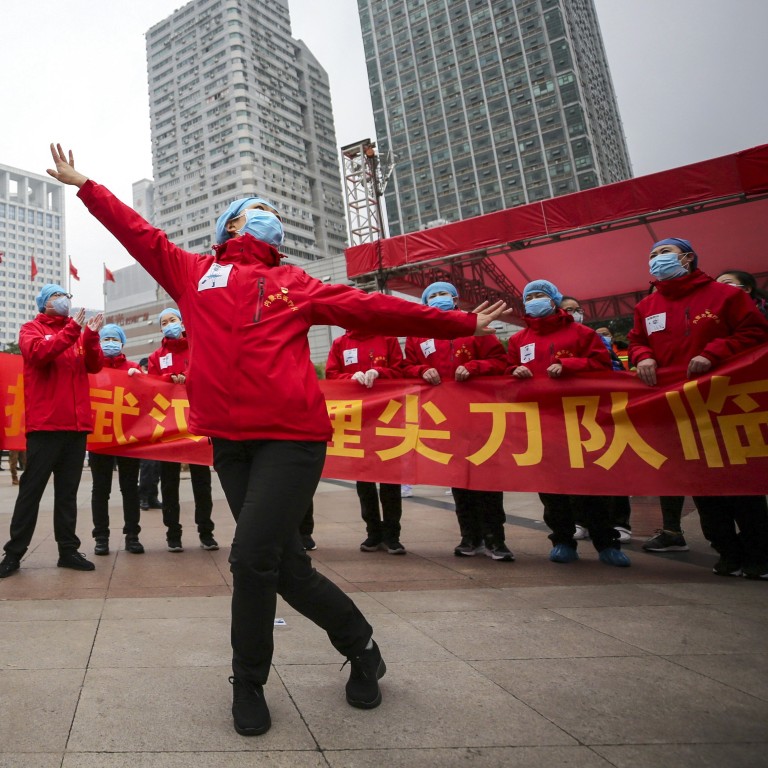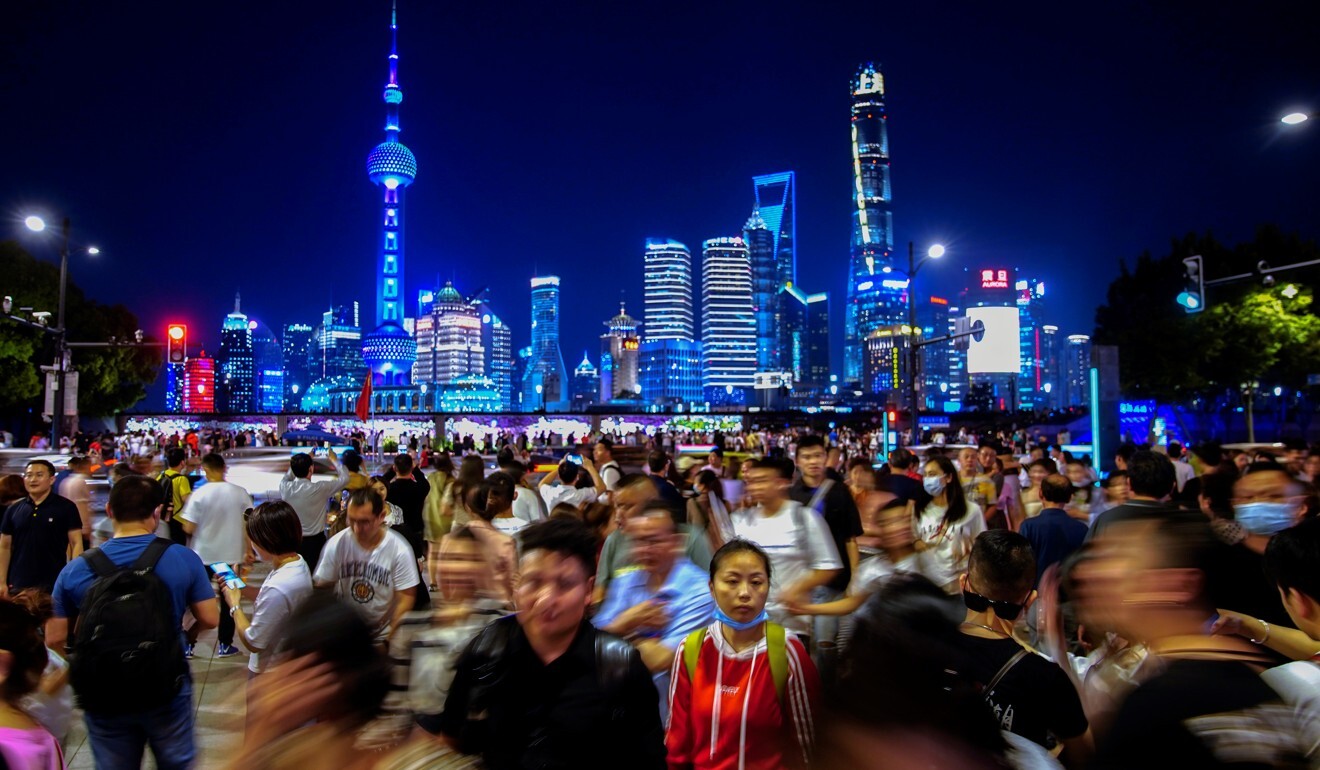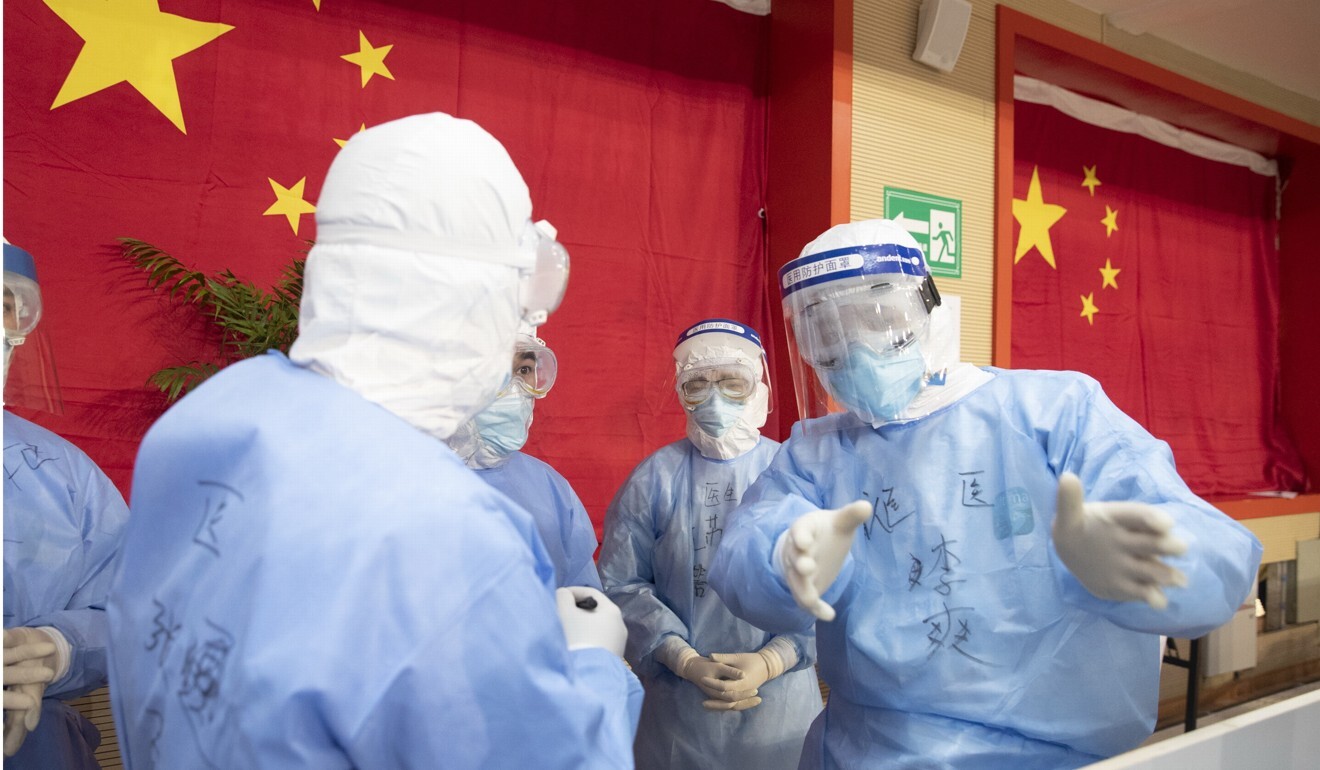
Are Chinese people falling out of love with the Western dream?
- Fewer young adults regard the West as a place to look up to, according to survey by research centre affiliated to Chinese state-run tabloid
- ‘Social strata in the US are deeply entrenched because of [the lack of] education and unequal opportunities created by races and poverty,’ blogger says
When Jade Deng was about to give birth at a hospital in San Antonio, Texas in July, she was shocked to learn that staff at the Chinese consulate in Houston were burning documents.
“Why did they do that?” the 33-year-old former garden designer from central China’s Hubei province asked her husband, who at the time was studying for a PhD in biology at the University of Texas in San Antonio.
“Because the consulate will close soon,” he said.
The Dengs had planned to stay in the US if the husband could find a job after graduating. But the fraught relationship between China and the US and the suspicion of Chinese scientists on US campuses convinced them it was no longer a land of opportunity.
In January, they returned to Hubei to start a new life. “It’s hard for a Chinese to be really a part of US society,” Jade said.
Former champion Chinese gymnast back on the streets doing handstands and singing for money
Like the Dengs, Qiao Mu, a liberal scholar who used to be a vocal critic of Beijing, said he had begun to see the US in a different light after living there for four years.
“Chinese society has experienced fundamental changes over the past decades. Poverty and injustice are still prevalent but you can change your life and move upwards [in society] if you try,” he wrote in his blog in March.
“However, the social strata in the US are deeply entrenched because of [the lack of] education and unequal opportunities created by races and poverty.”
The Dengs and Qiao are two examples of young educated Chinese who have become disenchanted with the US in recent years as Beijing and Washington have clashed on a range of issues from trade and technology, to human rights and geopolitics.
In April, the Global Times Research Centre, a body affiliated with the Chinese state-run tabloid newspaper, asked 1,200 young adults in China about their attitudes towards Western countries.
The proportion of respondents who saw them as equals was six percentage points lower than it was in a similar poll conducted in 2016, while the percentage who “looked up to” the West was 30 points lower.
China’s 6 million ‘black lung’ workers living on just US$61 a month, with most struggling to survive
An online poll of nearly 20,000 people carried out by Cary Wu, a sociology professor at York University in Ontario, Canada, in April 2020 found that Chinese people’s trust in their own state government had risen to 98 per cent.
“Their trust in local government also increased compared to 2018 levels – 91 per cent of Chinese citizens surveyed now said they trust or trust completely the township-level government,” he said in an article published in The Washington Post on May 5.
“Trust levels rose to 93 per cent at the county level, 94 per cent at the city level and 95 per cent at the provincial level. These numbers suggest that Chinese citizens have become more trusting in all levels of government.”

Such a high level of trust in the authorities is in stark contrast to the situation with more than a decade ago when the Chinese government was mired in a series of corruption scandals, a widening wealth gap between the rich and poor, and public confidence crises caused by official malfeasance.
Qin Qianhong, a law professor at Wuhan University, said China’s effective containment of the coronavirus pandemic in 2020 had influenced how people perceived the country’s political system.
China’s wealth gap poses threat to Beijing’s post-pandemic economic plan
“Seeing China had effectively controlled the spread of the pandemic at a time when the major Western countries were suffering big losses, the Chinese people, including myself, have become more supportive of the Chinese system and way of governance,” said Qin, referring to Beijing’s autocratic system which does not tolerate political dissent.
The coronavirus pandemic, which was first reported in Wuhan in December 2019, has mostly been brought under control in China with only a small number of local infections reported each month. Other countries, like India, are still battling the disease which has infected more than 160 million people worldwide and caused 3.3 million deaths.
Steve Tsang, a political scientist and director of the China Institute at the SOAS University of London, said the shift in the balance of power between China and other countries was another reason for the change of attitude among Chinese people.
“With China on a rising trajectory at a time when Western democracies have become weakened by the likes of [former US president] Donald Trump and [British Prime Minister Boris] Johnson as well as their relatively poor management of the Covid pandemic, [Chinese President] Xi Jinping’s party-centric nationalist narrative becomes attractive in China,” Tsang said.
Pei Minxin, a Chinese-American political scientist at Claremont McKenna College in California, said the fact some Western politicians had taken a hostile approach towards Beijing had created resentment among Chinese people.
“With the US now openly hostile to China, it is understandable that many Chinese, including those who hold liberal views, may espouse these nationalistic and anti-American attitudes,” he said, adding that the poor handling of the pandemic by some Western countries had made the idea of Western democracies less palatable.

China’s growing economic power and technological development also meant better living standards and greater economic freedom for the average Chinese, said Peng Peng, executive chairman of the Guangdong System Reform Research Society, a think tank in southern China.
“The Chinese government pays special attention to the nation’s continuous economic development, and a prosperous economy is indeed a guarantee for ordinary people to maintain and improve their living standards,” he said.
“And we need to take into account that China’s technological development and widespread use of the internet have in fact made life in China much more convenient than what’s available in Western countries.”
Data from China’s National Bureau of Statistics showed that the annual per capita disposable income of the average urban family in China was 43,834 yuan (US$6,800) last year, an increase of 130 per cent from 2011 and a six-fold gain since 2000.
Rural families have also become better off with their annual per capita income reaching 17,131 yuan last year – almost three times the figure in 2010 or 6.6 times that of 2000.
China says Japan’s military drills with France, US are a waste of fuel
But Tsang and Pei cautioned that as more Chinese became proud of their country, the risk of narrow-minded nationalism would increase.
“The self-righteousness inherent in the party-centric nationalism will make China much more assertive and likely to challenge the US as the dominant global power,” Tsang said.
Pei said: “We should not be fuelled by rising nationalism. It can only lead to catastrophe. We should not underestimate [Western] democracies’ resilience and the capacity to renew. It’s too early to write off [Western] democracy.”
While there were individuals in China who had been vocal about China’s ascendancy, it would be impossible to assess whether their views represented those of the leadership, he said.
“China today has far more restrictions on speech and expression than at any time in the post-Mao era, so we can only take these [pro-Chinese system] views as expressions of the individuals,” he said.

